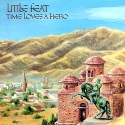
|
|||||||||||||||||||||||||||||||||||||||||||||||||||||
|
A few weeks ago I was walking in my neighborhood in Berkeley, a hot day, and I came up behind an old man, all bundled up, walking slowly. The sidewalk was narrow, so I walked around him, and as I passed I said, gently "Excuse me." He jumped, startled and said reflexively -- "I'm sorry." In an instant I felt protective and sorry I hadn't found some other way to handle this. I did the best I could, and said something like Oh no, smiled and continued my pace. He was skinny and fragile, exposed and vulnerable, and reminded me of my father, who will turn 80 this month. I felt protective for this man as I would if he were my own family. And was instantly reminded of something my father says often, that's worth remembering: Growing old isn't for sissies. No doubt. But we, whose bodies still work, more or less, as they were designed to, can easily overlook that in every old body is a person who remembers well what it was like to be young. We are at a disadvantage, we don't know their experience, we get little inklings of it when we get sick, but we expect we'll get better. At some point, you no longer have that to depend on, and the quality of life must change. Why do old people reach my heart this way? It could be their courage, or the inner strength it takes to compensate for the weak body. I don't know why they get to me this way. But they do. Greetings to Chinese bloggers! Twenty years ago today -- the Tiananmen Square Uprising in China. There were no blogs that day, but things have certainly changed.
Now so many blogs and social media sites are blocked in China. Here's a tool that helps you determine if your site is blocked. http://www.websitepulse.com/help/testtools.china-test.html If you discover anything interesting, feel free to report in a comment here.
As I've said before, I believe Twitter is a chapter in a story that's been playing out for a long time. It's both the best news system and the worst. No pictures, no video, limited metadata, and it has an increasingly confining 140-character limit. But it connects people like no system before has. It's both the backroom for journalism and the delivery mechanism. A lot of power there. But imho it's not the last word. The remaining news organizations will move onto twitter-like systems over the next few years. The news system of the future is electronic and real-time. The stakes are huge now. If I were in their shoes, I'd be thinking very hard about how I want these systems to evolve as environments for journalism. I'd stop worrying about squeezing Google for a handout and start thinking about how to grab some of the PE-ratio for myself. But the lions of the news industry lack imagination and chutzpah. Where are the strategists, the bizdev people of the news industry? They're plotting paywalls, when they should be creating and linking new conduits with graphics, sound and movies. The business model? The same one that served Google in its early years. People are so excited about what you're doing that they pour cash all over you. The SUL is a small piece of the big picture, but it's an important one. For all the reasons I've said. No need to repeat it. Now I'm going to let everyone else worry about this for a while. |
"The protoblogger." - NY Times.
"The father of modern-day content distribution." - PC World.
One of BusinessWeek's 25 Most Influential People on the Web. "Helped popularize blogging, podcasting and RSS." - Time.
"The father of blogging and RSS." - BBC.
"RSS was born in 1997 out of the confluence of Dave Winer's 'Really Simple Syndication' technology, used to push out blog updates, and Netscape's 'Rich Site Summary', which allowed users to create custom Netscape home pages with regularly updated data flows." - Tim O'Reilly.
My most recent trivia on Twitter. On This Day In: 2008 2007 2006 2005 2004 2003 2002 2001 2000 1999 1998 1997. |
||||||||||||||||||||||||||||||||||||||||||||||||||||
|
© Copyright 1997-2009 Dave Winer. Previous / Next |
|||||||||||||||||||||||||||||||||||||||||||||||||||||





